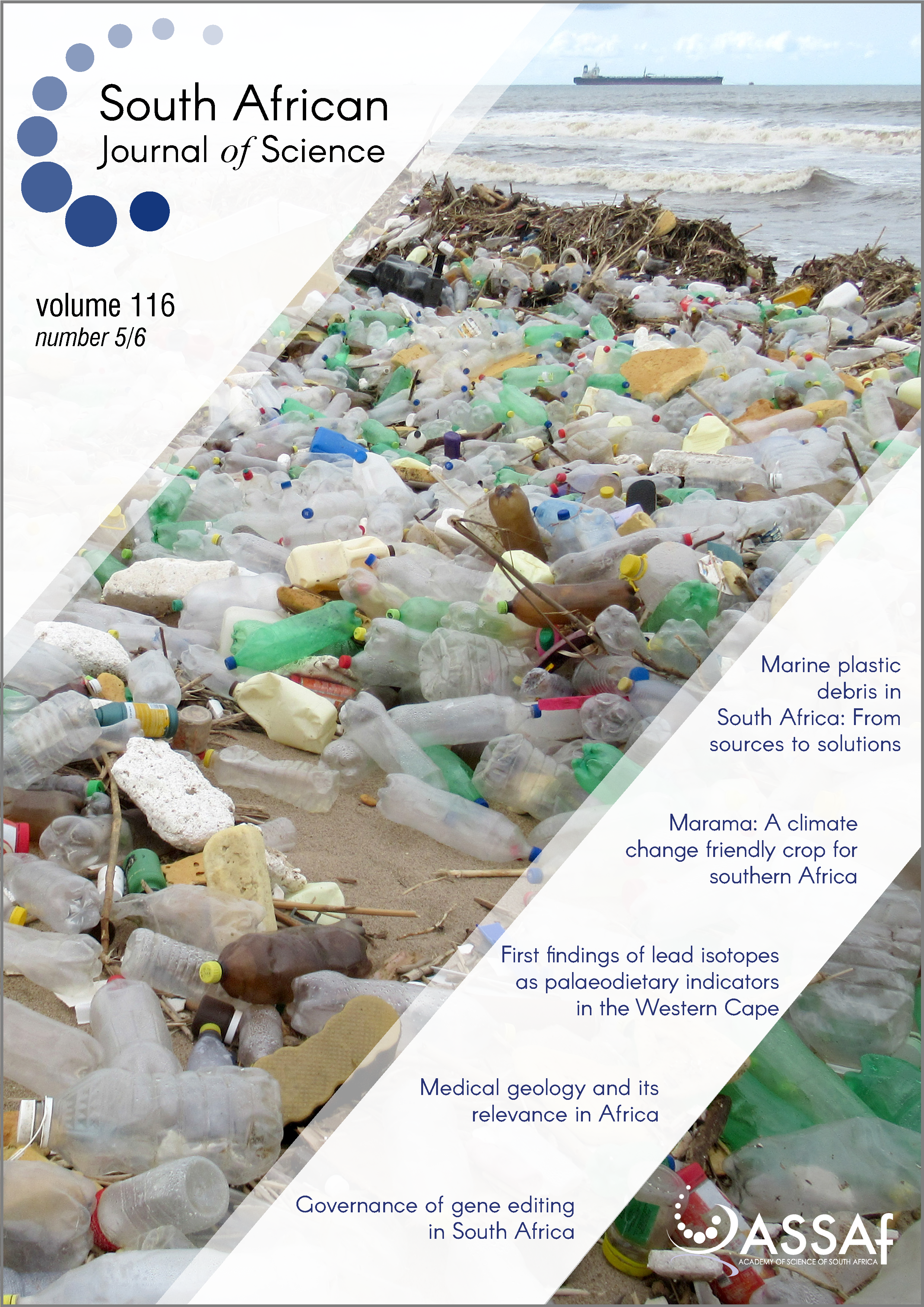Land-based sources and pathways of marine plastics in a South African context
DOI:
https://doi.org/10.17159/sajs.2020/7700Keywords:
microplastic, waste management, socio-economics, industry, transportAbstract
We review and evaluate the major land-based sources and pathways of plastic waste that lead to marine pollution in a South African context. Many of the formal solid waste and waste-water management facilities in South Africa are not fully functional, contributing towards plastic releases to the environment. Much plastic also enters the environment directly by informal and illegal dumping. Once in the environment, plastic is transported and distributed by air, inland waterways and human activity, with complex dynamics that are not fully understood. Depending on the size and type of plastic and environmental factors like wind action and run-off, plastic can be deposited into sinks such as soil, river sediments and vegetation, or carried to the ocean. Contrary to an initial assumption that South Africa is the 11th worst contributor to marine plastic pollution, we estimate from more accurate and recent data that between 15 000 and 40 000 tonnes per year is carried to the oceans. This amount is six-fold less than a previous estimate. Despite many data and information gaps that require urgent attention through research and monitoring, it is clear that the status quo will lead to a worsening of already severe plastic pollution of all environments. South Africa needs to reduce plastic entering the environment by reducing illegal and informal dumping, effectively implementing and improving waste management infrastructure, and intensifying long-term awareness campaigns. Most importantly, however, immediate and effective mitigation is required.
Significance:
- More accurate and recent data show that between 15 000 and 40 000 tonnes of plastic is carried to the oceans from South Africa per year – six-fold less than the widely used previous estimate.
- Riverine sediments are potentially major sinks for plastic en route to the ocean.
- Management of treated waste-water sludge, as well as the state of waste-water treatment plants (WWTPs) are key concerns. WWTPs are reported to remove most plastic from the water content. The state of South African WWTPs have deteriorated to such an extent that up to 40% of the country’s waste water is untreated and data and management practices of sludge are unavailable.
- There are major data gaps in the South African waste sector, which lead to miscalculations and uncertainties about the country’s contribution to marine plastic debris.
Published
Issue
Section
License

All articles are published under a Creative Commons Attribution 4.0 International Licence
Copyright is retained by the authors. Readers are welcome to reproduce, share and adapt the content without permission provided the source is attributed.
Disclaimer: The publisher and editors accept no responsibility for statements made by the authors
How to Cite
- Abstract 4097
- PDF 2109
- EPUB 237
- XML 388












.png)